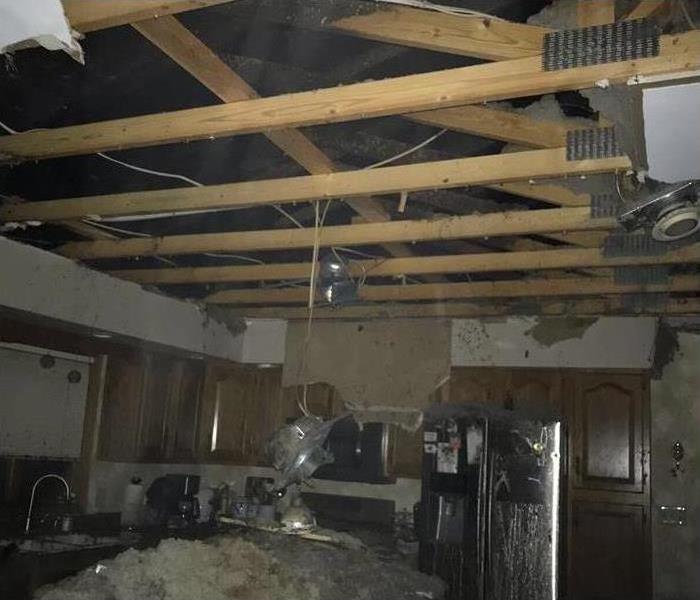Fires, what causes them and what you can do to protect yourself and loved ones
5/22/2023 (Permalink)
The following data is from the National fire Protection Association
Cooking was the leading cause of reported home fires and home fire injuries in 2015-2019 and the second leading cause of home fire deaths. Cooking caused 49 percent of reported home fires, 20 percent of reported home fire deaths, and 42 percent of home fire injuries
Heating Equipment is the second leading cause of home fires and home fire injuries, and the third leading cause of home fire deaths. Local fire departments responded to an estimated average of 48,530 fires involving heating equipment per year in 2014-2018, accounting for 14% of all reported home fires during this time. These fires resulted in annual losses of 500 civilian deaths, 1,350 civilian injuries, and $1.1 billion in direct property damage.
Electrical Fires, To help reduce your risk, NFPA and ESFI recommend that you have all electrical work done by a qualified electrician, including electrical inspections, when buying or remodeling a home. In the video below,
Candles, from 2015-2019 U.S. fire departments responded to an estimated 7,400 home structure fires that were started by candles per year. These fires caused an annual average of 90 deaths, 670 injuries and $291 million in direct property damage.
Smoking materials, including cigarettes, pipes, and cigars, started an estimated 17,200 home structure fires reported to U.S. fire departments in 2014. These fires caused 570 deaths, 1,140 injuries and $426 million in direct property damage. Smoking materials caused 5% of reported home fires, 21% of home fire deaths, 10% of home fire injuries, and 6% of the direct property damage.
Some fire safety tips
Unplug items when not in use
Things like computers, TVs, game systems and a whole lot more use electricity even when they’re not on. That means they can always experience a surge or they can just overheat and cause a fire.
Use Surge Protectors
A surge in power is when you are most likely to experience an electrical fire and by plugging items into a surge protector you don’t have to worry about that excess electricity getting to the item and causing a fire.
Never Leave Flames Unattended
If you’re cooking or lighting candles, you want to make sure that you’re watching it at all times. If you start cooking anything, you never want to walk away from the stove. Keep dish cloths and anything combustible away from the stove. If you start a fire in your fireplace you want to make sure you keep an eye on that as well. Keeping a fire extinguisher in the kitchen or near the fireplace is a very good idea. Make sure all of the adults in the home know how to properly use the extinguisher.
Don’t Smoke in the Home
If you do smoke, it’s important to always do so in a well-ventilated area and to completely put out the cigarette before you throw it away. My father when he smoked in the house would always run water over the butt before throwing it away. Cigarettes have a variety of additives and materials inside of them that can continue to burn even if you think that you’ve put them out.
Remove Lint and Change Filters
Your heating system needs a filter in order to run, but how often do you change out that filter? You need to be doing it frequently because if lint fills up that filter the heat from the furnace can actually ignite it.
This is true for your dryer as well. You want to make sure that you remove the lint from your dryer filter every time that you do the laundry. Even a small amount of lint could cause a huge fire.
Space Heaters
Turn off space heaters when you leave the room including electric fireplaces. Make sure you only use heaters that automatically turn off if they tip over.
Reduce the Clutter
Cluttered home can enable a fire to spread more quickly.
Store Oils and Gases Away from Flames And Sparks
This would include keeping cooking oils away from the stove and store gas and flammables in approved containers and away from open flames such as pilot lights.
Have your Furnace Tuned up annually
An HVAC professional can make sure that your furnace is going to keep working the right way and that it’s not going to put you in any danger of fire.
Remember should the worst happen and you do have a fire
SERVPRO of Dubuque
Faster to any size Disaster
563-584-2242
SERVPROdubuque.com






 24/7 Emergency Service
24/7 Emergency Service